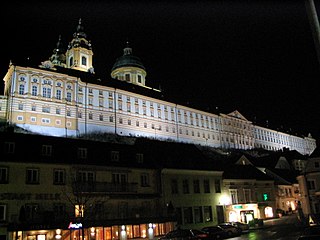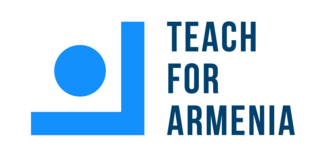Related Research Articles

The demography of Germany is monitored by the Statistisches Bundesamt. According to the first census since reunification, Germany's population was 83,190,556, making it the second-most populous country in Europe after Russia, and the sixteenth-most populous country in the world. The total fertility rate was rated at 1.57 in 2018. In 2008, fertility was related to educational achievement. In 2011, this was no longer true for Eastern Germany, where more highly educated women now had a somewhat higher fertility rate than the rest of the population. Persons who said they had no religion tend to have fewer children than those who identify as Christians, and studies also found that conservative-leaning Christians had more children compared to liberal-leaning Christians.

West Germany, officially the Federal Republic of Germany, retrospectively designated as the Bonn Republic, is the common English name for the Federal Republic of Germany between its formation on 23 May 1949 and the German reunification through the accession of East Germany on 3 October 1990. During this Cold War period, the western portion of Germany was part of the Western Bloc. West Germany was formed as a political entity during the Allied occupation of Germany after World War II, established from eleven states formed in the three Allied zones of occupation held by the United States, the United Kingdom and France. Its provisional capital was the city of Bonn.

German reunification was the process in 1990 in which the German Democratic Republic (GDR) became part of the Federal Republic of Germany (FRG) to form the reunited nation of Germany.

A gymnasium is a type of school with a strong emphasis on academic learning, and providing advanced secondary education in some parts of Europe comparable to British grammar schools, sixth form colleges and US preparatory high schools. In its current meaning, it usually refers to secondary schools focused on preparing students to enter a university for advanced academic study. Before the 20th century, the system of gymnasiums was a widespread feature of educational systems throughout many countries of central, north, eastern and southern Europe.

The Free University of Berlin is a public research university in Berlin, Germany. The Free University of Berlin is one of eleven elite German research universities in the German Universities Excellence Initiative. Free University of Berlin is consistently ranked among Germany's top ten universities overall, with particular strengths in the arts & humanities followed by the social sciences internationally. It is recognised as a leading university in the international university tables.

Education in Germany is primarily the responsibility of individual German states (Länder), with the federal government playing a minor role. Optional Kindergarten education is provided for all children between one and six years old, after which school attendance is compulsory. The system varies throughout Germany because each state (Land) decides its own educational policies. Most children, however, first attend Grundschule for 4 years from the age of 6 to 9. Germany's secondary education is separated into two parts, lower and upper. Lower-secondary education in Germany is meant to teach individuals basic general education and gets them ready to enter upper-secondary education. In the upper secondary level Germany has a vast variety of vocational programs.

Youth For Understanding (YFU) is an international educational exchange organization. A network of over 50 independent national organizations worldwide, YFU representatives work together to advance learning across cultures.
BRD is an unofficial abbreviation for the Federal Republic of Germany, informally known in English as West Germany until 1990, and just Germany since reunification. It was occasionally used in the Federal Republic itself during the early Cold War; it was commonly used between 1968 and 1990 by the ruling party of the German Democratic Republic, resulting in a strong deprecation of its use in West Germany. The East German regime had previously used the term "German Federal Republic", which it abbreviated as "DBR", to refer to West Germany. The most widely used abbreviation for West Germany in the country itself was its ISO 3166-1 alpha-2 country code "DE", which has remained the country code of reunified Germany.

Owing to labour migration in the 1960s and several waves of political refugees since the 1970s, Islam has become a visible religion in Germany. An estimate published in 2016 for 2015 calculated that there are 4.4 to 4.7 million Muslims in Germany. Of these, 1.9 million are German citizens (2.4%). There are also higher estimates, for example according to the German Islam Conference in 2012, Muslims represent 7% of the population in Germany in 2012. According to a 2019 statistical count, there are nearly 440,000 individuals from countries with a muslim majority in Berlin, constituting 11.6% of the population.
Teach For America (TFA) is a nonprofit organization whose stated mission is to "enlist, develop, and mobilize as many as possible of our nation's most promising future leaders to grow and strengthen the movement for educational equity and excellence."

Friedbert Pflüger is a former German politician of the Christian Democratic Union (CDU). He was a Member of the German Bundestag (1990-2006). He was Secretary of State in the Federal Ministry of Defence (2005–2006), and the CDU's candidate for Governing Mayor of Berlin in the 2006 Berlin state election. He was a member of the Berlin House of Representatives (2006–2011) and a member of the executive board of the CDU (2000-2010). Today, he is a businessman and teaches Energy- and Climate Security at the Center for Advanced Security, Strategic and Integration Studies (CASSIS), University of Bonn. He is Visiting Professor at King’s College London.

A Hauptschule is a secondary school in Germany, starting after four years of elementary schooling (Grundschule), which offers Lower Secondary Education according to the International Standard Classification of Education. Any student who attends a German elementary school can go to a Hauptschule or Gesamtschule, while students who want to attend a Realschule or Gymnasium need to have good marks in order to do so. The students spend five to six years at the Hauptschule, from 5th to 9th grade. They finish around age 15 to 17.

Gymnasium, in the German education system, is the most advanced of the three types of German secondary schools, the others being Realschule and Hauptschule. Gymnasium strongly emphasizes academic learning, comparable to the British grammar school system or with prep schools in the United States. A student attending Gymnasium is called a Gymnasiast. In 2009/10 there were 3,094 gymnasia in Germany, with c. 2,475,000 students, resulting in an average student number of 800 students per school.

The Congress-Bundestag Youth Exchange is a youth student exchange program founded in 1983. The program, which is jointly sponsored by the United States Congress and the German Bundestag, funds exchange programs for German and American students through grants to private exchange organizations in both countries. The funding in the United States is administered by the Bureau of Educational and Cultural Affairs of the United States Department of State

Athletes from Germany (GER) have appeared in 27 of the 30 Summer Olympic Games, having competed in all Games except those of 1920, 1924 and 1948, when they were not permitted to do so. Germany has hosted the Summer Olympic Games twice; the 1936 Games in Berlin, and the 1972 Games in Munich.

The James Madison Memorial Fellowship Foundation was established by the United States Congress in 1986 to encourage outstanding current and future secondary school teachers of American history, American government, and social studies in grades 7 through 12 to undertake graduate study of the roots, framing, principles, and development of the Constitution of the United States. The Foundation thus permanently commemorates the bicentennial of the Constitution and honors James Madison, fourth President of the United States and generally acknowledged "Father of the Constitution and the Bill of Rights."
Teach For All is a global network of 59 independent, locally led and funded partner organizations whose stated shared mission is to "expand educational opportunity around the world by increasing and accelerating the impact of social enterprises that are cultivating the leadership necessary for change." Each partner aims to recruit and develop diverse graduates and professionals to exert leadership through two-year commitments to teach in their nations' high-need classrooms and lifelong commitments to expand opportunity for children. The organization was founded in 2007 by Wendy Kopp and Brett Wigdortz. Teach For All works to accelerate partners' progress and increase their impact by capturing and sharing knowledge, facilitating network connections, provisioning global resources, and fostering leadership development of staff, teachers, and alumni.
Studenten machen Schule is an educational organization in Germany.

Teach For Armenia is a non-profit organization, which aims to expand educational opportunities for all children in Armenia, regardless of their socio-economic circumstances, by recruiting, training, and supporting high-achieving graduates and professionals to teach for a minimum of two years in the most underserved schools across Armenia.